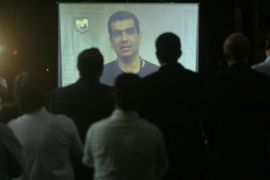Hostages plea for Colombia talks
Families shown footage of legislators held captive by Farc for more than five years.

“President, you are the only one who can make this happen, the whole country will support you,” Juan Carlos Narvaez, one of the politicians captured in a 2002 raid on a legislative building in southern province of Valle del Cauca, said on the video.
Hostage issue
The 12 hostages are among hundreds of soldiers, politicians and civilians held for as long as nine years in rebel camps in jungle areas.
The captives also include three US contract workers captured four years ago.
Uribe, has gained popularity for his hard-line campaign that has driven rebels back into the jungles and dramatically reduced violence from the four-decade conflict.
| Related feature |
But the release of hostages, including Ingrid Betancourt, a French-Colombian citizen and a former presidential candidate, has become a sensitive issue following his re-election last year.
Farc, a leftwing movement, has been fighting since the 1960s
Its leader have said they will release 61 key hostages if the government de-militarises two rural towns in order to hold talks on releasing hundreds of jailed guerrillas.
Crucial corridor
The government has so far rejected Farc’s demand for talks, saying the movement is inextricably linked with Colombia’s huge cocaine trade and demanding more guarantees, fearing the rebels will use the area to regroup as they did during similar talks with Uribe’s predecessor.
Authorities say the two municipalities, Florida and Pradera, are a key corridor for trafficking arms and cocaine from southern provinces, where the coca leaf used to make the drug is cultivated.
“If they want an agreement we are willing to do this even by telephone,” Juan Manuel Santos, the defence minister, told reporters.
“But they insist on the demilitarisation of Florida and Pradera, which is the bottle neck in all this.”
France, Switzerland and Spain have already presented a proposal for talks but moves toward negotiations were stopped last year after a series of bombing attacks that the government blamed on Farc.